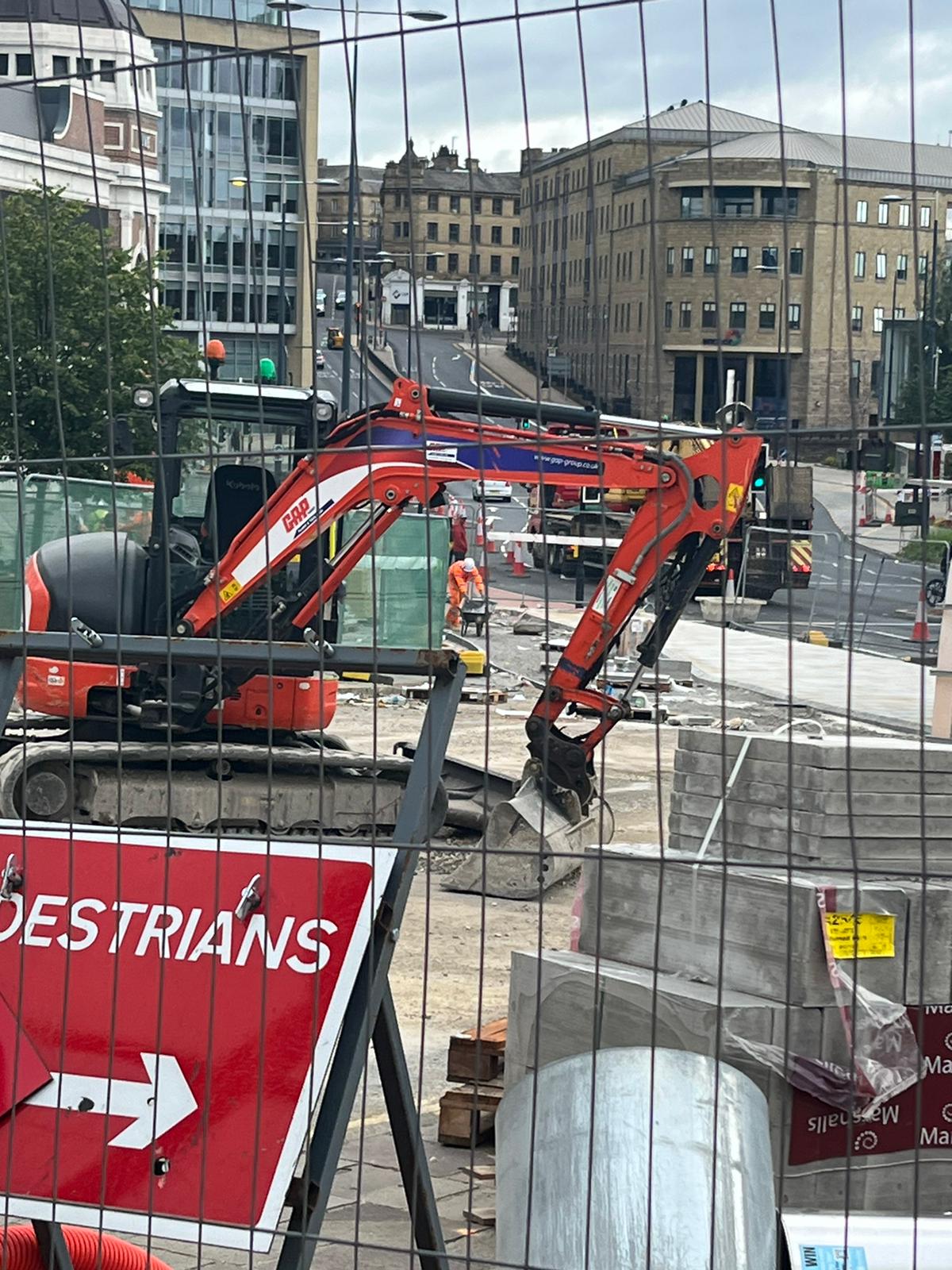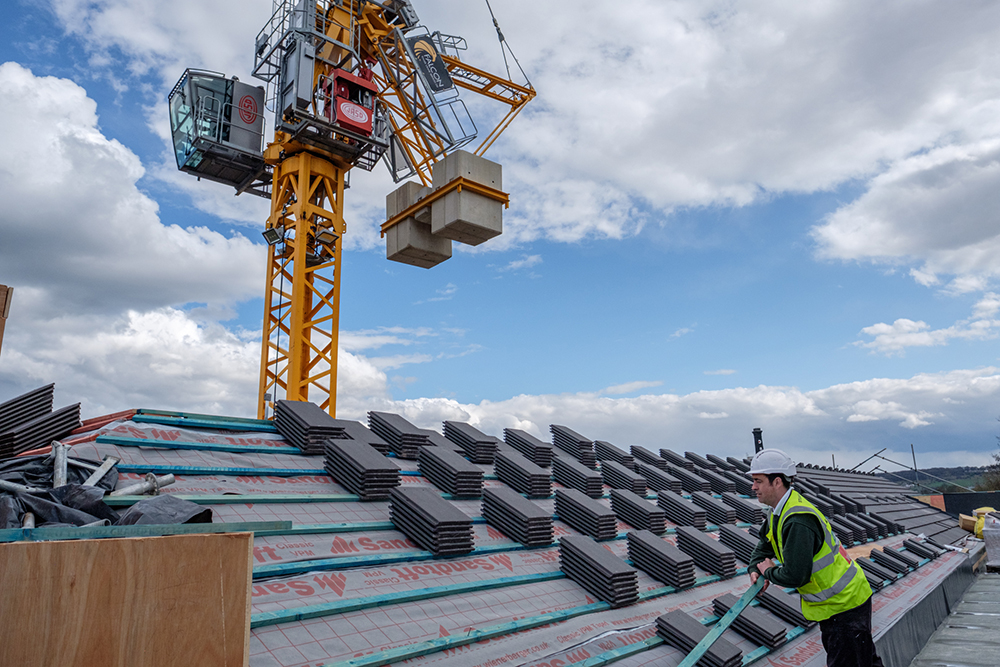Introduction
Our Industry guides give you the lowdown on what the Bradford District has to offer. They're here to help you figure out what qualifications and training opportunities are available nearby and to give you the scoop on career options in specific industries.
If you're not sure about what careers are out there, these guides are perfect for exploring and getting to know each sector better. They're your go-to for understanding the different paths you can take into a career, whether it's through Apprenticeships, Traineeships, starting out early in your career, going to college or university, or learning on the job.
In Bradford District, there are 15 industry sectors to explore - you can find them all on the Career Options page. Each guide will tell you specific ways to plan for an occupation, as well as suggesting educational and vocational opportunities.

Build a Career in the Architecture & Construction Industry
When it comes to a Career in the Architecture and Construction industry, you should have a keen interest in any of the following:
- solving practical problems
- analysing information
- mathematics
- design and technology
Another key quality companies look for is the ability to work in a team. IT skills are desirable but are not always a necessity. You will need your Maths and English standards (GCSE 4-9) as a minimum to gain employment as an apprentice with the vast majority of companies.
The wide variety of of skills required by the Architecture and Construction industry means there is an interesting range of career opportunities available. You may believe that all there is to construction is getting your hands dirty, but this is a misconception. There are plenty of roles in which you get to wear smart clothes and keep clean! You could be working in the office or outdoors, but doing both will mean that you are working in an environment which is always changing – how exciting is that?! The UK construction industry is the safest in Europe, and you will always be under protection with protective clothing and safety processes.
As long as you are determined, there are many opportunities to transfer your knowledge and skills into other areas across the industry. If you have entrepreneurial qualities, you could quite possibly end up running your own business! According to the CITB, more than a third of people working in the Architecture and Construction industry are their own boss; the prospects are clear to see. Architecture and Construction falls into three distinct categories:
- Pre-Construction (such as marketing, design and business development, surveying)
- Construction (e.g. trades and labour, health and safety, supplier engagement)
- Post-Construction (for example, snagging, final accounting, maintenance)
The Careers and Technical Education (CTE) Partnership have worked closely with leaders within the industry, and discovered that the most critical occupations across Bradford and District are currently:
- Civil Engineers
- Quantity Surveyors
There are many great companies (from SMEs to global businesses) operating across Bradford District that have made a difference to the world of construction, providing progressive and innovative material solutions.
Other companies deliver exceptional engineering and construction services and focus heavily on employer equality. You will also definitely find businesses that specialise in areas such as joinery, shopfitting, design and bespoke manufacturing

Qualification Information
Some of the skills and knowledge gained from GCSE studies will be particularly useful for a career in Architecture and Construction. We can't list every one, but some examples are below:
English Language
- Reading comprehension
- Discussion and debates
- Critical thinking
- Analytical skills
- Time management
- Technical accuracy
English Literature
- Comparative analysis
- Contextual understanding
- Critical thinking and evaluation
- Exam preparation
Maths
- Data handling
- Problem solving
- Geometry and measures
Science
- Data analysis
- Investigative skills
- Practical skills
Art
- Portfolio development
- Organisation and time management
- Critical analysis and reflection
- Technical skills refinement
Design & Technology
- Manufacturing techniques
- Computer-aided design (CAD)
- Prototyping and testing
- Design theory and context

Courses in Architecture & Construction
There are several different courses available which will help to get a job in Architecture and Construction, examples of those currently available locally are below:
Design, Planning, Estimating, Surveying & Procurement:
- Engineering Level 1 Bradford College
- T Level Construction - Design, Surveying & Planning Bradford College
- Engineering Maintenance, Level 3 apprenticeship Leeds City College
- MSc Advanced Civil and Structural Engineering University of Bradford
Earthworks, Demolition & Deconstructions:
Fixing, Finishing & Utilities Operations:
Repair, Maintenance & Management:
- Welding Level 1 Bradford College
- Engineering & Manufacturing - Maintenance, Installation & Repair T Level Leeds City College
- Fabrication & Welding Technologies Level 2 Diploma Leeds City College
- Bricklaying Level 1 Bradford College
- Plumbing Studies Level 1 Keighley College
Customer Service and Sales Support:
- Business Entry Level 3 Bradford College
- Business Foundation T Level Bradford College
- Business Level 2 Shipley College
- Management & Administration T Level Keighley College
- Business Level 3 BTEC Keighley College

15 Career Choices is Architecture & Construction
The below jobs are a sample of 15 occupations that can be found in the Architecture & Construction sector in Bradford District and beyond. Click on the job title for more information:
- Acoustics Consultant - help manage and control noise and vibrations in homes, workplaces and other environments
- Architect - design new buildings and the spaces around them, and work on the restoration and conservation of existing buildings
- Building Services Engineer - design, install and service equipment and systems in buildings like offices and shops
- Carpenter/Joiner - make and install wooden structures, fittings and furniture
- Carpet Fitter/Floor Layer - fit carpets and vinyl tiles, and lay laminate and solid timber floors
- Civil Engineer - design and manage construction projects, from bridges and buildings to transport links and sports stadiums
- Construction Labourer - prepare building and civil engineering sites and carry out manual jobs once work starts
- Crane Driver/Operator - operate lifting machinery on construction, quarrying and mining sites, at ports and in warehouses
- Demolition Operative - dismantle buildings and structures, remove hazardous materials, and carry out salvage operations
- Electrician - fit, service and fix electrical equipment, circuits, machinery and wiring
- Estimator - work out how much it will cost for a company to supply products and services to its clients
- Heating and Ventilation Engineer - install and service heating and air conditioning in large buildings like factories, schools and hospitals
- Paint Sprayer - apply coatings and protective finishes to cars, vans, motorbikes and other vehicles
- Painter & Decorator - prepare and apply paint, wallpaper and finishes to different surfaces
- Welder - join, cut and shape metal plate, pipework and composite materials in industries like aerospace, construction and civil engineering

Useful Resources
Find below some useful websites giving information about working in this sector:
GoConstruct quizzes and personality matrix
Construction Skills Certification Scheme (CSCS cards to work on a building site)
The Construction Industry Training Board (CITB)
Building Engineering Services Association
Chartered Surveyors Training Trust

Digital Badges
Digital badges are a great way to gain recognition for skills and learning which doesn't have a qualification attached to it. If you are a learner aged 13+ please sign up to our Navigatr platform to access the digital badges we offer.
This is quick, easy and free to do. Follow the link below to create your own Navigator account and earn your first digital badge by reading the information and completing quiz at the bottom of the page:
https://www.navigatr.org/what-are-digital-badges-2
To see some of the badges available for Bradford District click on the link below for more information:
People working in this sector may design, develop, build or repair residential and business premises, infrastructure and transport systems.
I would like to find out more about…
This pathway is the very beginning of a construction project and involves turning a concept into a plan, finding the most sustainable and cost-effective way of bringing an idea to life. Development projects, whether in towns, cities or rural areas, have to be safe, efficient and adhere to legal guidelines.
This pathway involves using anything from basic hand tools to larger plant machinery, used effectively to strip out fittings, remove hazardous materials and salvage anything that can be reused, before demolishing or dismantling the unsafe or obsolete buildings and structures.
Off-Site Manufacturing is a revolutionary aspect of the architecture and construction industry. This method of construction is defined by building modular components off-site, using indoor facilities in a production line approach. The manufacturing process is performed in a controlled factory environment.
This pathway involves overseeing the wider project when constructing new buildings. Civil and Structural Engineering involves the design, construction, maintenance and repair of infrastructure such as roads and bridges, buildings, and underground transport systems. Conservation of animal habitats and flood alleviation are other key components to consider when managing construction projects.
Maintaining the upkeep of equipment, repairing and fixing broken equipment, upgrading or installing utilities and inspecting finished projects to ensure they comply with Health and Safety regulations are all key elements of this pathway.
This post-construction pathway focuses on managing the repairs or ‘snags’ found in various areas such as buildings and landscapes, by tracking and reporting progress.
Once a construction project has been completed, it is imperative that there is visible tracking, co-ordinating, monitoring and recording of sales through excellent customer service and after-sales support.


